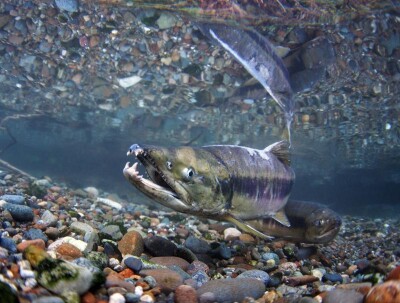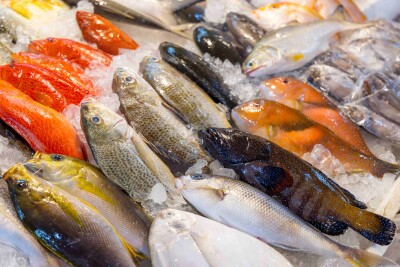The warm water blob that's hovering off the Oregon coast is stunting the growth of northwest salmon, spurring scientists to warn this year's impressive fall chinook runs won't last.
A new study from Oregon State University and the National Oceanic and Atmospheric Administration found juvenile chinook, which spend most of their lifespan in the ocean, become dramatically less healthy when sea temperatures rise even slightly above average.
With an increase of just two degrees Celsius, the fish are smaller and thinner than normal, despite eating more food than they would in colder conditions.
Scientists believe the fish struggle in warm water for two reasons: They need more food to stay healthy, but their go-to food sources become harder to find.
The research, published this week in the journal PLOS One, refutes scientists' previous assumption that salmon eat less when the water warms.
Read the full story at The Oregonian >>
Read more about salmon >>






